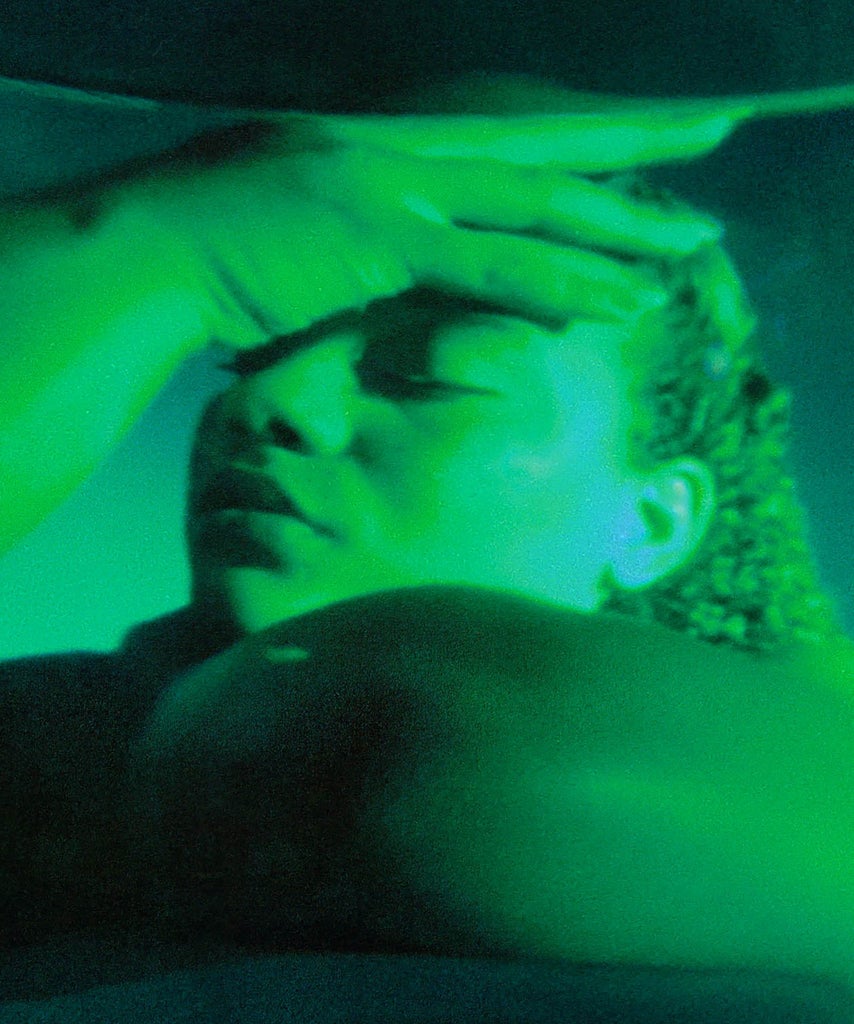
We’ve evolved enough as a species to know that too much of a good thing is actually a bad thing — even excessive amounts of water and exercise can have adverse effects. But serotonin? The hormone and neurotransmitter that regulates our mood and is literally known as the happy chemical? Apparently, too much of that is also a bad thing. When there’s an influx of that happy chemical, one can experience something called serotonin syndrome. And, reader, it’s not as fun as it sounds.
First, a quick refresher on serotonin. It’s a critical chemical that helps our brain communicate with the rest of our body, including our central nervous system, and plays a role in numerous body functions: mood, sleep, digestion, sex drive, blood clotting, bone health, learning, memory, and more (she’s that girl). About 90% of our body’s serotonin is produced in our gut while the other 10% is found in our brains.
Although too little serotonin can result in depression, anxiety, sleep and digestive problems, and more, serotonin syndrome occurs when our body receives too much serotonin too quickly. This can cause mild symptoms such as vomiting, nausea, diarrhoea, shivering, sweating, rapid heart rate, fever, all the way to far more serious symptoms, like kidney failure, seizures, and death. Jill Grimes, MD, author of The Ultimate College Student Health Handbook, says that the first thing we should know about serotonin syndrome is that it exists at all. Awareness is key for identifying potentially life-threatening situations such as this one, and knowing about what can cause it is important.
There are multiple things that can cause you to experience serotonin syndrome, but Dr. Grimes tells Refinery29 that it often has to do with our medications. “The most common thing that we see is young people who are on an SSRI (selective serotonin reuptake inhibitors) such as Lexapro, Zoloft, Prozac, etc., and they’re on an ADHD medicine stimulant, both of which can raise serotonin, and on top of that they add something else in, whether that’s a drink with a bunch of ginseng or cocaine or LSD or maybe just a migraine medicine,” says Dr. Grimes. Basically, it’s serotonin syndrome is likely to happen when we’re mixing multiple substances that affect our serotonin levels together. Besides SSRIs and other medications, Dr. Grimes says that cough syrup or anything with dextromethorphan, which is often used in cold medicines, can also cause an influx of serotonin. Most symptoms of serotonin syndrome occur within one to six hours of consumption.
You can experience serotonin syndrome from more than just medications. Monique, 27, tells Refinery29 that drinking one too many adaptogenic drinks this past October led her to experience what she suspects was serotonin syndrome. “I do a little bit of camming, so I like to have a drink or something while I’m constantly streaming,” she says. After ending up on sober curious TikTok, she decided to give one of these buzzy drinks a try. The ingredients included 5-HTP, which has all been found to stimulate serotonin. Monique ended up having four cans within two or three hours — a big no no. The brand she tried suggests that you should have no more than four over a 24-hour period. They also say to stay away from the drinks if you’re under 18, breastfeeding, pregnant, already taking SSRIs or have a medical condition.
Monique started noticing symptoms around 30 to 45 minutes after the fourth can. “I don’t even think I was able to finish the last one because I was shaking. I felt nauseous, sick to my stomach, I got sweaty and hot — those cold sweats,” she says. “It felt like a drug-induced reaction… I was so confused.” So, she Googled her symptoms — and the first thing that came up that checked off all of her symptom boxes was serotonin syndrome. “I was very surprised because I’m not on any other medication,” she says. “But I did have them in a much shorter period of time than you’re supposed to.”
Although Monique didn’t seek medical attention following her symptoms, she did speak to her therapist about it. “We agreed that ginseng in [those] amounts might not be good for me,” she says. If you suspect you are experiencing serotonin syndrome, the advice is always to seek help.
When it comes to any kind of herbal supplement, not just those that are in adaptogenic drinks, Dr. Grimes advises us to err on the side of caution if you’re already taking a medicine that raises serotonin, and especially if you are taking more than one. “With companies marketing ‘sober-curious’ choices that still ‘create a buzz,’ odds are good there will be ingredients in there that target serotonin and can interact significantly,” she says. “It’s almost never one drink or one supplement, but the piling on of that third or fourth element that creates this infrequent but serious syndrome.”
If you’re experiencing what you think could be serotonin syndrome, Dr. Grimes says to head to the emergency room right away. “This is not something to wait out,” she says. “This is a definite true emergency.” There isn’t a test that confirms whether or not you’re experiencing serotonin syndrome, which is why it’s best to seek medical attention stat. The treatment will depend on how severe your symptoms are.
Although it sounds scary, Dr. Grimes says it’s nothing we should be too paranoid about. Next time you’re in the mood for a serotonin boost, just remember — take it easy.
Please note: the medical information in this article is general in nature. Please always consult your GP to obtain advice specific to your medical condition.
Like what you see? How about some more R29 goodness, right here?
Have We Been Lied To About Serotonin?